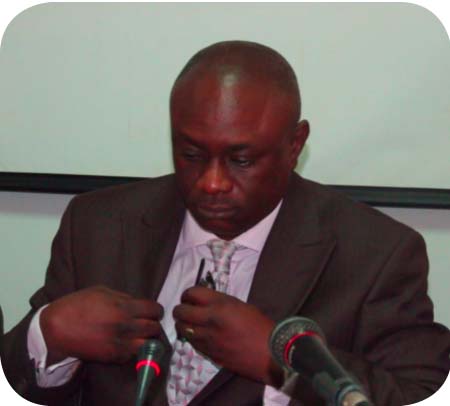
It was organised by the United Nations Office on Drugs and Crime (UNODC), and funded by the U.S. Department of State, which has been supporting activities of UNODC’s global programme against money laundering, proceeds of crime and the financing of terrorism throughout West Africa.
The workshop was opened Monday by Basiru Njie, first deputy Governor of the Central Bank of The Gambia, who thanked UNODC “for capacitating institutions in West Africa and, in particular, The Gambia and Sierra Leone.”
Although it is impossible to know precisely the amount of illicit funds laundered, he pointed out, “the International Monetary Fund believes money laundering may account for 2 to 5 percent of the world’s gross domestic product, estimated to be as high as US$3.6 trillion.”
Mr. Njie also announced that “the UNODC has set 2019 as the target date to significantly reduce or eliminate money laundering related to crime, and the Financial Action Task Force, an inter-governmental body established to combat money laundering, urges international cooperation to realize this important goal.
“It is therefore critically important that the competent authorities not only raise awareness, but provide training to the FIUs to assist them better detect suspicious transactions,” he went on.
He also stated that ECOWAS leaders the established the Intergovernmental Action Group Against Money Laundering in West Africa (GIABA) in 2000, whose remit includes to protect the banking and financial systems of member states from being penetrated by criminal proceeds.
At national level, Mr. Njie continued, the Gambian authorities continue to put in place legal, institutional and other measures in accordance with international best practices in the fight against money laundering and terrorism financing.
Ludovic D’Hoore of the UNODC said “the objective of the workshop is to further enhance the operational capacity of the FIUs, and to foster synergies with key partner agencies in their respective countries.”
The FIUs “are a key player, when it comes to anti-money laundering and combating terrorism financing, as they receive information from reporting entities and, after analysis, they disseminate relevant financial intelligence to law enforcement. Establishing strong FIUs is essential to making such strategies work.”
Yahya Camara, director of The Gambia’s Financial Intelligence Unit (GFIU) said the “analysis of data, especially financial data is at the heart of the work of FIUs.”
The analysis of data and information is a crucial step in the intelligence cycle for the production of operational and strategic intelligence for investigation by relevant law enforcement agencies.
Camara hoped the workshop will help build the analytical capacities of the FIUs of The Gambia and Sierra Leone to appropriately analyse suspicious transactions reports, cash transaction reports and other forms of reports.
The Gambia government funds the operations of the FIU, which is under the Central Bank of The Gambia.


